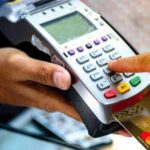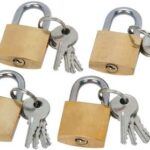Last Updated on October 24, 2023 by admin
The High rate of Global Fraud and theft is on the increase, financial sector are not left out from hacking and fraud as they continue to provide security measure in protecting bank account holders
Internet scammers and fraudsters on the increase, and they are constantly devising new sophisticated methods to steal bank customer money due to alarming rate of cybercrime activities all over the world.
Read: How to Block Gtbank and Zenith Bank ATM Debit Card in case of fraud
Safeguard Your Account
Banks has continuously to developed and implement security enhancements to ensure the integrity of their Online Banking platform, Mobile baking and ussd code for transaction are seamless, fast and secure to protect online safety, the confidentiality of your account and personal data.
Nobody knows your account better than you. That’s why you should never share your card details, internet banking log in and token with anyone over the phone, SMS or email.
How to prevent yourself from scammers, hacker and fraudulent e-mails and Web sites.
1. Use strong and unique passwords: Create strong, complex passwords that include a combination of upper and lowercase letters, numbers, and special characters. Avoid using predictable passwords like your birthdate or common words. Additionally, ensure you use different passwords for each of your accounts.
2. Enable two-factor authentication (2FA): Two-factor authentication adds an extra layer of security by requiring you to provide a second form of verification, such as a code sent to your mobile device, in addition to your password. This makes it much harder for hackers to gain access to your accounts.
3. Be cautious of phishing attempts: Be wary of emails, messages, or phone calls requesting sensitive information such as your username, password, or financial details. Legitimate institutions will never ask you to provide such information over email or an unsolicited phone call. Always verify the source of any request before sharing any personal information.
4. Regularly monitor your accounts: Keep a close eye on your bank accounts and review your transactions regularly. If you notice any suspicious activity or unauthorized transactions, report them immediately to your bank or financial institution.
5. Update your devices and software: Ensure that you regularly update your computer, smartphone, and other devices with the latest security patches and software updates. These updates often include important security fixes that can protect your devices from vulnerabilities.
6. Avoid using public Wi-Fi networks: Public Wi-Fi networks may not be secure, making it easier for hackers to intercept your data. Avoid accessing your bank accounts or conducting financial transactions while connected to public Wi-Fi. Instead, use a trusted and secured internet connection, such as your personal Wi-Fi or a trusted cellular network.
7. Install reputable security software: Utilize robust antivirus software, anti malware tools, and firewalls on your devices to protect against malicious software and potential cyber attacks. Keep these security tools up to date to ensure maximum effectiveness.
8. Regularly review your privacy settings: Check your privacy settings on banking apps, social media platforms, and other accounts to ensure you are limiting the amount of personal information you are sharing with the public. Restrict access to your personal data to help minimize the chances of becoming a target for hackers.
9. Be cautious with account information: Be cautious about who you share your account information with. Avoid providing your account details or personal information in response to unsolicited requests or suspicious websites. Only share your information with trusted entities and organizations.
10. Educate yourself about online scams: Stay informed about the latest scams and techniques used by fraudsters and hackers. Regularly educate yourself about common scams and tactics to avoid falling victim to them. This knowledge will help you recognize and avoid potential threats to your bank accounts.
Also read: How To Activate Stanbic Bank IBTC USSD Code- transfer money, buy airtime and block bank card
11. Never put your ATM card on bookmarking website known as betting website that not the real site. a friend was defraud with this method when he input his card on one Nigeria popular betting site that was sent to him as Phishing link
12. Keep your ATM cards safe and do not share your personal identity number (PIN) with anyone. Do not keep any written copy of your PIN with your card. Memorize it.
13.Avoid downloading Fake Apps, make sure you make use of your bank real app. malware author creates a perfect replica of a bank’s app and uploads it to shady third-party sites. Once you’ve downloaded the bad app, you enter your username and password into it, which is then sent to the hacker.
Read: FCMB USSD Code – How to Register, transfer money, buy airtime
14. SIM Swapping: SMS authentication codes are some of the biggest problems for hackers though they can contacts your network provider, claiming to be you. They state that they lost their phone, and that they’d like a transfer of their old number (which is your current number) to their SIM card.
To avoid this always keep your personal details private to avoid someone stealing your identity. Also, it’s worth checking if your mobile provider is doing their part to defend you from SIM swapping.
15. Pharming: This Occurs when you enter a Web address but are redirected, without your consent or knowledge, to a fraudulent site that looks similar to a legitimate site. The intent of the fraudulent site is to capture confidential information.
You may like:UBA ussd code: How to register, Transfer money & buy Airtime and book for flight
Conclusion.
You are the first and best layer of defense in combating online fraud. Learning to properly detect and avoid online scams is the ultimate protection against fraud.
You will never be contacted directly by your bank or third party companies like MasterCard or Visa to verify personal or card information, your PIN or to request that you transfer funds or process transactions to protect your account.
- How to Register for CIBC Online Banking and Mobile - January 13, 2026
- All Nigerian Banks Ussd Code for transaction - November 30, 2025
- How to contact Central Bank of Nigeria Email, Phone & Branches - November 19, 2025









